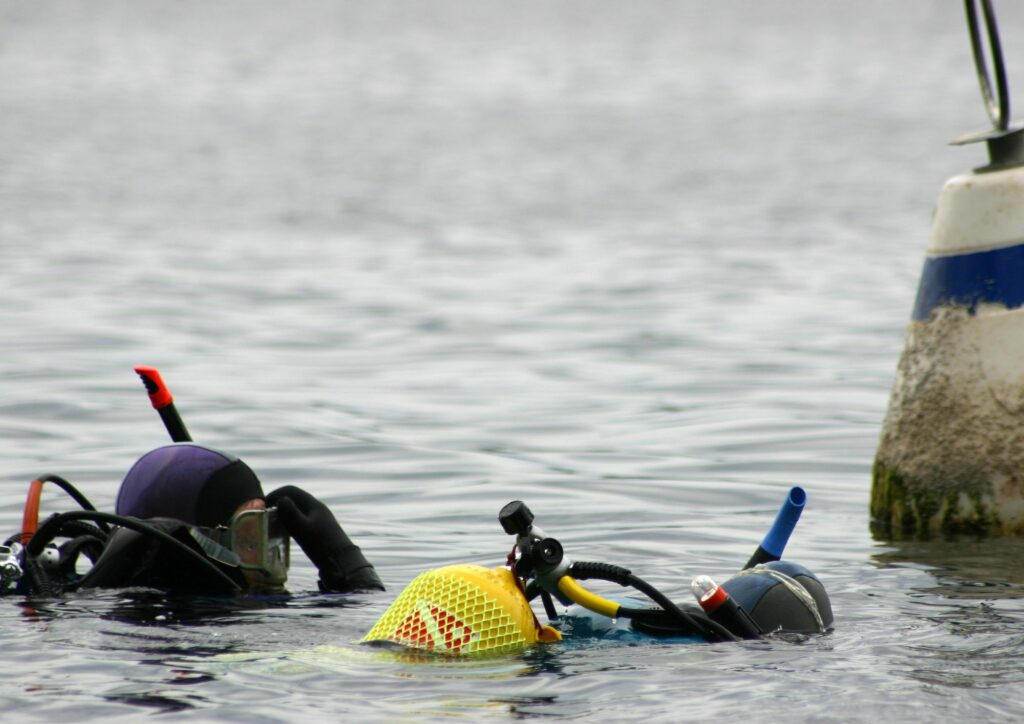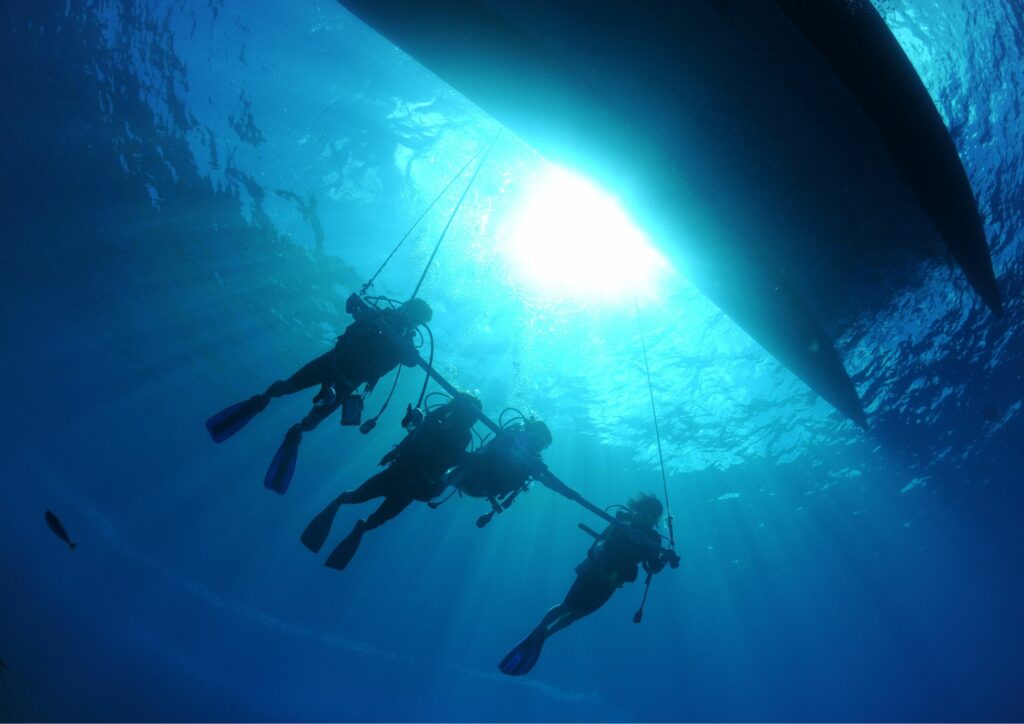Embarking on the journey to master rescue diving in the breathtaking waters of Bali is both an exhilarating and essential endeavor for any avid diver. This ultimate guide will equip you with crucial knowledge and skills, including rigorous equipment checks, successful swim tests, and the importance of safety stops. You will also learn vital lifesaving techniques like CPR and first aid, alongside the role of an oxygen provider (O2) in emergencies. Furthermore, navigation skills will be highlighted to ensure your dives are not just thrilling but also safe and planned. Join us as we delve into the essential steps you need to take to become a proficient rescue diver in this paradise of marine life.
Essential Equipment Check for Rescue Divers
Before embarking on your rescue diving journey in Bali, performing a thorough equipment check is crucial for ensuring safety and efficiency underwater. Make sure your dive gear—including your mask, fins, wetsuit, tank, and buoyancy control device (BCD)—is in optimal condition. Assess your oxygen provider (O2) equipment and ensure you have your first aid kit ready in case emergencies arise. Always check your dive computer for calibration and battery life, as accurate navigation can greatly impact your dive experience. Engaging in regular equipment checks not only enhances your confidence but is vital for successful rescue diving.
The Importance of Swim Tests in Rescue Diving
Swim tests are a critical component of rescue diving training, especially in a vibrant dive destination like Bali. These assessments evaluate a diver’s swimming ability, endurance, and comfort in the water, ensuring they can respond effectively during emergencies. A well-executed swim test assesses various skills including treading water, surface diving, and navigation, which are essential for any rescue scenario. By mastering these skills, divers build confidence in their capabilities, which can be pivotal when assessing distress signals underwater. Furthermore, passing a swim test sets the foundation for understanding other essential rescue protocols such as CPR, first aid, and making necessary safety stops.

Safety Stops: Why They Matter in Rescue Scenarios
Safety stops are a crucial aspect of rescue diving, particularly in Bali’s vibrant underwater environments. These brief pauses during ascents allow divers to off-gas excess nitrogen, minimizing the risk of decompression sickness, which can be critical in rescue situations. By incorporating a safety stop, divers ensure they maintain optimal buoyancy and control, which is vital when managing an emergency scenario. Additionally, these stops provide an opportunity to assess the situation, check on the rescued diver, and prepare for the next steps in the rescue process. Remember, a safety stop can be the difference between a successful recovery and a potential complications due to ascent too quickly.
CPR Techniques Every Rescue Diver Should Know
In the realm of rescue diving, mastering CPR techniques is crucial for every diver. Understanding the basics of cardiopulmonary resuscitation can make the difference between life and death in emergency situations. Divers should familiarize themselves with adult, child, and infant CPR, including the correct chest compression and rescue breath ratios. The American Heart Association recommends a ratio of 30 compressions to 2 breaths for adults. It’s also vital to practice these skills regularly as part of your dive training. Moreover, pairing CPR knowledge with first aid skills enhances safety for yourself and fellow divers. Ensure you stay current with certifications, as this can prepare you for real-life emergencies.
First Aid Basics for Dive Emergencies
In the realm of rescue diving, understanding first aid basics is crucial for effective response during emergencies. A well-rounded knowledge of CPR techniques can save lives, especially in situations where a diver faces respiratory issues. Familiarizing yourself with the essential first aid protocols, including managing injuries and recognizing diving-related illnesses, is vital.
As part of your training, being certified in first aid and equipped with an oxygen provider (O2) certification prepares you for unexpected situations. Whether you’re in a dive group or solo, possessing these skills not only enhances your safety but also the safety of others around you. By having a solid grasp of first aid, you’ll increase your confidence and readiness to act when faced with emergencies, making the dive experience more secure for everyone involved.
Oxygen Provider (O2) Protocols and Usage
Understanding Oxygen Provider (O2) protocols is crucial for any rescue diver. Proper use of oxygen can significantly enhance a diver’s chances of survival in emergency situations. Start with familiarizing yourself with the equipment, ensuring it is in optimal condition during your equipment check. During a rescue scenario, administering oxygen to an unconscious or distressed diver can stabilize their condition. It’s vital to quickly assess the situation and use the oxygen system effectively. Remember to always follow established protocols for delivering oxygen, including the right flow rates and safety precautions. Training in CPR and first aid is critical to complement O2 usage, ensuring that you are well-prepared for emergencies.
Navigational Skills for Successful Rescue Operations
Navigational skills are essential for successful rescue operations in Bali’s diverse underwater environments. When facing adverse conditions, a diver must be able to effectively determine their position and plan the safest route to both the rescue site and the exit point. Familiarizing yourself with underwater landmarks, currents, and the use of navigation tools, such as compasses and dive tables, is crucial. Additionally, conducting a thorough equipment check before each dive can enhance navigational confidence. Regular practice during training dives will sharpen your spatial awareness and instinctive response to navigate back to safety in emergency situations.
Best Practices for Rescue Diving in Bali’s Unique Environment
Rescue diving in Bali requires a unique set of best practices to ensure your safety and effectiveness in this vibrant underwater environment. Start by conducting a thorough equipment check to ensure all gear functions properly, as the diverse marine life and potential hazards require reliable equipment. Additionally, practicing a swim test before diving can help assess your physical condition and readiness. Always perform a safety stop during ascents, allowing your body to safely off-gas nitrogen and reduce decompression sickness risks. Remember that being proficient in CPR, first aid, and oxygen provision (O2) is essential, giving you the skills to respond effectively in emergencies. Navigation skills are also crucial, as these can help you locate distressed divers quickly and efficiently.
Final Thoughts on Mastering Rescue Diving in Bali
In conclusion, mastering rescue diving in Bali requires more than just a passion for the ocean; it necessitates a comprehensive understanding of essential techniques and safety protocols. By consistently performing equipment checks, honing your navigation skills, and refining your CPR and first aid knowledge, you can prepare yourself for any situation that may arise underwater. Engaging in regular swim tests and familiarizing yourself with safety stop procedures will further enhance your capabilities as a rescue diver.
This Bali diving for rescue dive needs careful preparation and knowledge not only increase your confidence but also ensure the safety of yourself and your fellow divers. As you embark on your journey to become a proficient rescue diver in Bali, remember that practice is key. Engaging with the local diving community can provide invaluable experience and insights of Bali diving.
Don’t hesitate to seek professional training to enhance your skill set further, especially in areas like oxygen provision (O2) and rescue scenarios. Embrace every opportunity to learn and grow, as this will ultimately make you an asset to your diving team and the broader diving community. With dedication and the right mindset, you will not only master rescue diving but also enjoy the breathtaking underwater beauty that Bali has to offer.

I completely agree with this post! Mastering rescue diving in Bali requires a lot of knowledge and skills. I’m glad that the author emphasized the importance of equipment checks, swim tests, and safety stops.
Hi Evelyn, we’re glad you agree with our post on mastering rescue diving in Bali! At Gill Divers, we emphasize the importance of equipment checks, swim tests, and safety stops as they are crucial for a successful rescue operation. Our instructors are highly trained to ensure that all divers receive comprehensive training and guidance to prepare them for any situation that may arise underwater. If you have any questions or concerns about our diving courses or services, please don’t hesitate to contact us at Tel: +65 6734 9373 or Email: [email protected]. We’d be happy to assist you.
This post is very informative! I like how it breaks down each aspect of rescue diving in Bali. The section on CPR techniques was particularly helpful.
Thank you, Rizal Amir! We’re glad to hear that our post on rescue diving in Bali was informative and helpful. The CPR techniques section is indeed a crucial part of the training process. If you have any more questions or would like to learn more about rescue diving, please don’t hesitate to reach out to us at Gill Divers. We’d be happy to provide guidance and support. You can contact us via phone at +65 6734 9373 or email at [email protected].
I’m a big fan of this blog! This post is well-written and easy to follow. The author did a great job of explaining complex concepts in a way that’s accessible to everyone.
Hi Aisha, thank you for your kind words about our blog! We’re thrilled to hear that you found the post easy to follow and informative. As a rescue diver, it’s essential to stay up-to-date with the latest techniques and best practices. Our blog aims to provide valuable insights and knowledge to help divers like yourself enhance their skills and stay safe while exploring the ocean. If you have any specific questions or topics you’d like us to cover in future posts, feel free to reach out! We’re always here to help. Contact us at Tel: +65 6734 9373 or Email: [email protected]. Thank you again for your feedback!